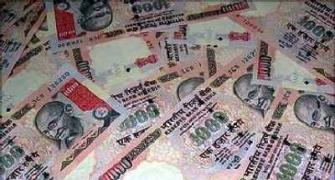The Telecom Commission (TC) on Saturday put the onus of deciding the contentious issue of the base price for auction of 1,800 MHz of 2G band spectrum on the Empowered Group of Ministers (EGoM) headed by Finance Minister Pranab Mukherjee. The Telecom Regulatory Authority of India (Trai) had recommended a reserve price of Rs 3,622 crore (Rs 36.22 billion) for one megahertz of spectrum.
The Telecom Regulatory Authority of India (Trai) had recommended a reserve price of Rs 3,622 crore (Rs 36.22 billion) for one megahertz of spectrum.
In another move, which has brought some cheer to GSM companies, TC decided to ask the regulator to take a re-look at the impact that the reserve price would have on tariffs as well as on the viability of investments made by the telcos.
As part of its recommendations, Trai, under the chairmanship of J S Sarma, had said the impact on the cost of telcos would be minimal at around four to six paisa a minute.
Disagreeing with the view, telcos in a scathing attack on Trai, said the impact will be far larger and jeopardise the industry. They said the impact it could be 26 paisa a minute, going up to 90 paisa in the metros. However, with a new man in charge -- Rahul Khullar --- telcos say it will open a new door for the operators.
After a four-hour long meeting, R Chandrashekhar, chairman of TC and secretary of the Department of Telecommunications (DoT), told the media, "We have taken no view on what level the reserve price for 1,800 Mhz of spectrum should be. We have left it to the EGoM to decide."
"An analysis needs to be made circle-wise on the impact of the reserve price on tariffs if the entire amount is passed on to consumers and viability of the investments made by telecom firms," he added. The analysis would be ready by the end of this month and placed directly before the EGoM.
TC has also asked the regulator to determine whether the pricing arrived at through the auction method should be valid for 10 years, and not 20 years, even though the licence should continue to be given for 20 years.
"Keeping in view the rapid change in technology, Trai's view should be sought on whether for the purpose of pricing a period of ten years is more appropriate than 20
The Commission has accepted the regulator's new recommendations (after DoT put forward some queries) in which it has suggested that spectrum charges should be increased to three per cent, from one per cent, as it had said earlier.
It has also endorsed the regulator's suggestion to increase the base price for 800 MHz at two times that of the 1,800 MHz spectrum.
TC also rejected the regulator's plea to offer operators a deferred payment scheme over twelve years to reduce their burden saying this is not workable. It however, accepted the suggestion that mortgaging of spectrum to raise loans should be allowed.
Rajan Matthews, director general of the Cellular Operators Association of India (COAI), which represents GSM operators and had spearheaded the attack against the Trai regulations, said, "It's a move in the right direction.
The Commission has articulated that there should be analysis of the reserve price on government, industry and consumer. That's a good step." He hoped the new chairman will bring fresh eyes and ears to the issue.
On the other hand AUSPI, which represents the interests of CDMA players, was unhappy at the increase in the base price for them in the 800 MHz band. Said S C Khanna, secretary general, AUSPI, "Pegging the price of 800 MHz spectrum as twice the price of 1,800 MHz is a wrong move.
Besides, if deferred payment is not given then the base price should go down even further." Independent analysts say TC is right in not accepting Trai's calculations on the impact.
"Trai had missed out on many important parameters, while reaching their conclusions on the impact. It is good that the Telecom Commission has not accepted them and has asked them to review it again," said telecom analyst Mahesh Uppal.









